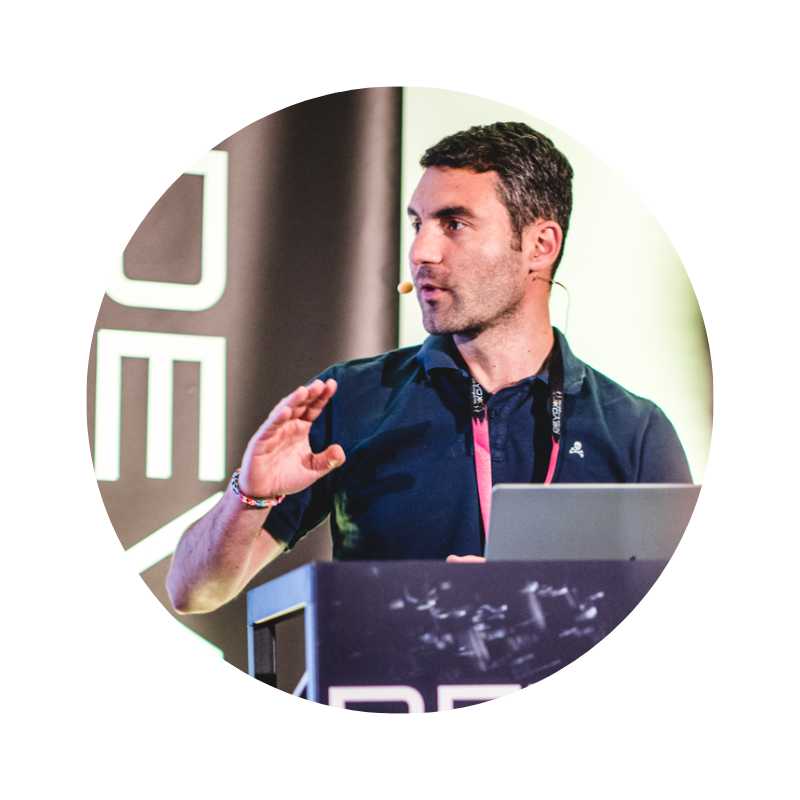November 24, 2023

In this Episode:
Marcel Brown: November 25, 2002. Digital media software company, Roxio, purchases the assets of the former Napster, including name, logo, domain name, technology portfolio, and other intellectual property. Roxio was the first company to attempt to use the Napster brand for a music service, renaming PressPlay as Napster 2.0.
Edwin Kwan: The Australian government has shelved plans to ban ransomware payments to cybercriminal groups for at least two years. The government had put the question to the industry in a consultation on whether it should prohibit the payments of ransoms, extortion demands by cybercriminals by victims of cybercrime and or insurers. And if so, under what circumstances?
Katy Craig: The swift resolution culminating in Altman’s return underscores a pivotal shift in corporate governance within tech companies. It’s a clear message that visionary leadership, often personified by figures like Altman, cannot be easily sidelined, especially when it resonates so strongly with employees and aligns with key stakeholders interests.
Olimpiu Pop: The recent turmoil at OpenAI, stemming from the ousting of CEO Sam Altman, has thrown the AI community into a state of intense discussion and speculation. We have a whole saga that looks more like a new season of HBO’s Game of Thrones than a sane tech company that is crafting the future of humanity.
Shannon Lietz: With all the brouhaha going on with Sam Altman and OpenAI, there’s a lot to unpack and digest. When OpenAI, not yet a year ago, released its ChatGPT to the world it was pretty obvious at the time that they were chasing adoption and velocity as a brand new organization entering into the market. But I don’t know that anybody would have predicted 100 million folks adopting ChatGPT as quickly as they did.
Trac Bannon: The news of San Altman sacking by the OpenAI Board of Directors shook the world on Friday, November 17th. As events unfolded in the following hours and days, the world suffered collective whiplash. While many are asking why the board made that decision, more profound questions are being raised about the balance between innovative leadership and effective governance.
From Sourced Network Productions in New York City, It’s 5:05 on Friday, November 24, 2023. This is your host Mark Miller and its Point of View Friday, where today four of our contributing journalists, give us their take on the OpenAI and Sam Altman circus, which took over the headlines for four days.
But first we’ll begin with Edwin Kwan discussing how Australia plans to pull back on the proposed ban against paying ransomware demands. Let’s get to it.
The Stories Behind the Cybersecurity Headlines
Edwin Kwan
Australia Shelves Plan To Ban Ransomware Payments
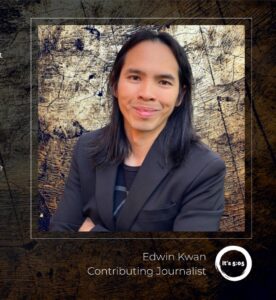 The Australian government has shelved plans to ban ransomware payments to cybercriminal groups for at least two years.
The Australian government has shelved plans to ban ransomware payments to cybercriminal groups for at least two years.
This is Edwin Kwan from Sydney, Australia.
The government had put the question to the industry in a consultation on whether it should prohibit the payments of ransoms, extortion demands by cybercriminals by victims of cybercrime and or insurers. And if so, under what circumstances? They also wanted to understand the impact of having a strict prohibition of payment of ransomware and extortion demands.
Responses from the industry consultation highlighted the complexity of imposing an outright ban . The Minister for Cybersecurity decided that more groundwork needed to be done before any ban on payments could be initiated.
The minister stated that there will ultimately be a ban on ransomware payments, but work needs to be done to prepare the country to manage the impacts of such a ban. Such work includes ensuring that the federal police is properly resourced and equipped to deal with this problem.
Resources
– Home Affairs: https://minister.homeaffairs.gov.au/ClareONeil/Pages/interview-with-patricia-karvelas-22112023.aspx
– IT News: https://www.itnews.com.au/news/gov-shelves-ransomware-payments-ban-for-at-least-two-years-602670
Marcel Brown
This Day, November 24, in Tech History
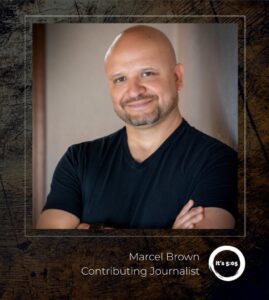 This is Marcel Brown bringing you some technology history for November 24th and 25th.
This is Marcel Brown bringing you some technology history for November 24th and 25th.
November 24th, 1998. AOL announces it will buy Netscape Communications in a stock for stock deal worth approximately $4.2 billion. At the time, it was considered a move by AOL and Netscape to merge forces to better compete with Microsoft in the browser and internet provider markets. However, Microsoft’s dominance in the personal computer market could not be stopped, and the Netscape browser lost almost all market share to Internet Explorer.
In 2003, Microsoft settled a monopoly lawsuit with AOL, then merged with Time Warner, for $750 million over the loss of the value of Netscape. AOL itself, once a dominant internet service provider, slowly lost their subscriber base with the evolution of broadband internet service in the early 2000s.
The source code for Netscape was eventually released as open source and became the foundation for the Mozilla Firefox browser.
November 25, 2002. Digital media software company, Roxio, purchases the assets of the former Napster, including name, logo, domain name, technology portfolio, and other intellectual property.
Napster was the peer to peer file sharing service that changed the music industry forever, facilitating the easy sharing of music, much to the chagrin of the established music industry. The RIAA sued Napster, causing a judgment against the file sharing service, requiring them to monitor its network for copyright infringing material and restrict access when made aware of such incidents. Napster could not comply with this court order and shut down its service before declaring bankruptcy in 2002.
Roxio was the first company to attempt to use the Napster brand for a music service, renaming PressPlay as Napster 2.0. In September 2008, Best Buy purchased the Napster service for $121 million before merging it with the Rhapsody service in December 2011.
That’s your technology history for this week. For more, tune in next week and visit my website, ThisDayInTechHistory.com.
Resources
– https://thisdayintechhistory.com/11/24
We’re at the part of our show where each Friday, our contributing journalists agree on a single topic for discussion. With the headline blaring news about Sam Altman, OpenAI and his firing, his tentative agreement to work as head of AI for Microsoft, and then coming back to take over OpenAI and fire half the board all within four days… well, what’s not to talk about.
Let’s start off with today’s POV with Trac Bannon.
Tracy (Trac) Bannon
OpenAI:Should Camelot Be Restored?
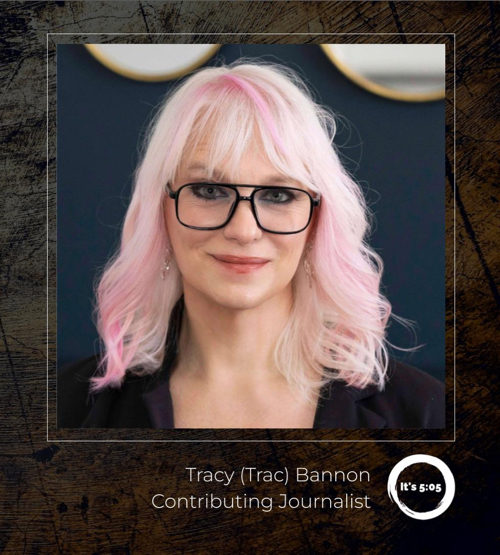
Hello, this is Trac Bannon reporting from Camp Hill, Pennsylvania.
The news of San Altman sacking by the OpenAI Board of Directors shook the world on Friday, November 17th. As events unfolded in the following hours and days, the world suffered collective whiplash. While many are asking why the board made that decision, more profound questions are being raised about the balance between innovative leadership and effective governance.
The sacking of Altman, coupled with the ChatGPT outage on November 21st, underscores the delicate equilibrium required in leading cutting edge technology organizations. The impact of such high level upheaval on an organization’s workforce can’t be overstated.
Morale, trust, and psychological safety matter. In the case of Sam Altman, the mix of political events and operational stability are sending additional shockwaves.
Right or wrong, Sam Altman is viewed as a bold visionary pushing the boundaries of AI technology while maintaining a strong ethical compass. His departure from OpenAI could change the company’s direction and shows the difficulty of balancing visionary leadership and governance.
It is no secret that Microsoft is the largest corporate investor in OpenAI, sinking over $10 billion and the use of their Azure cloud computing environment. As the OpenAI drama plays out, Satya Nadella has been the steady hand on the rudder. His simple words speak volumes. Surprises are bad.
Consider that industry leaders have consistently warned us of the potential risk of AI on humanity. Elon Musk, Bill Gates, Ginni Rometty, Mark Zuckerberg, and the late Stephen Hawking.
Nadella immediately stepped in to voice his support for the work of OpenAI, regardless of the configuration… a reference to Microsoft’s offer to hire Altman, Greg Brockman, and 743 of OpenAI’s 770 workers to keep the technology and innovation moving forward, yet contained.
Should OpenAI’s Camelot be restored? No, the evidence is clear. The world’s most powerful technology needs a combination of innovation and governance.
Sam Altman is currently in discussions to return to OpenAI. Satya has voiced continuing support for OpenAI. The world should collectively hope for a future where AI is both innovative and responsibly governed, benefiting humanity wisely and ethically.
Something to noodle on.
Resources
– BBC: https://www.bbc.com/news/business-67470876
– BBC: https://www.bbc.com/news/business-67494165
– BBC: https://www.bbc.co.uk/news/business-67458603
– Business Today: https://www.businesstoday.in/technology/news/story/surprises-are-bad-microsoft-ceo-satya-nadella-on-sam-altmans-probable-return-to-openai-406475-2023-11-21
– Business Insider: https://www.businessinsider.com/why-is-chatgpt-down-right-now-2023-11
Katy Craig
Sam Altman’s Triumphant Return
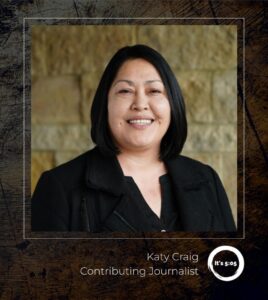 This is Katy Craig in San Diego, California.
This is Katy Craig in San Diego, California.
In an extraordinary twist fit for a Silicon Valley drama. OpenAI’s boardroom coup against CEO Sam Altman not only failed, but spectacularly backfired, leading to a reshuffling of the board itself. The recent turmoil at OpenAI, a beacon in the AI industry, laid bare the complexities and power dynamics at play in the high stakes world of technological innovation.
The attempt to oust Altman, ostensibly for a lack of transparency, was more than just a disagreement over leadership style. It symbolized a deeper conflict about the direction and speed of AI development. Altman, known for his ambitious, even aggressive, push for rapid AI advancement, found himself at odds with a cautious board.
However, this move to sideline him inadvertently galvanized a workforce adamant about their leader’s vision, leading to a near rebellion. This employee revolt, a clear indicator of Altman’s influence and the high regard in which he is held, forced the board’s hand. The result, a stunning reversal of fortune where the board not Altman faced the chopping block.
OpenAI’s announcement of Altman’s return, flanked by a restructured board, is not just a reinstatement of a CEO, it’s a resounding endorsement of his approach to AI development. What’s particularly intriguing is the role of Microsoft in this saga. The tech giant, a significant financial backer of OpenAI, briefly flirted with the idea of integrating Altman and co-founder, Greg Brockman into its fold.
However, as the crisis unfolded, it became clear that Microsoft’s interests were best served with Altman at the helm of OpenAI, leading to its tacit support for the board’s overhaul.
The swift resolution culminating in Altman’s return underscores a pivotal shift in corporate governance within tech companies. It’s a clear message that visionary leadership, often personified by figures like Altman, cannot be easily sidelined, especially when it resonates so strongly with employees and aligns with key stakeholders interests.
As OpenAI charts its course under Altman’s renewed leadership, with a board more aligned with his vision, one thing is clear. In the high octane world of AI development, it’s not just about the technology, but also about the people who drive it. Altman’s return is a testament to his leadership and a cautionary tale for boards that underestimate the power of visionary CEOs and the teams they inspire.
This is Katy Craig, stay safe out there.
Resources
– CNN: https://www.cnn.com/2023/11/22/tech/openai-altman-returns-hnk-intl/index.html
– X: https://x.com/OpenAI/status/1727206187077370115?s=20
Shannon Lietz
OpenAI and Microsoft: Win, Lose, or Draw?
 Hi, this is Shannon Leitz, from San Diego, California.
Hi, this is Shannon Leitz, from San Diego, California.
With all the brouhaha going on with Sam Altman and OpenAI, there’s a lot to unpack and digest. A few things for all of us. When OpenAI, not yet a year ago, released its ChatGPT to the world, a fabulous capability if you ask me, it was pretty obvious at the time that they were chasing adoption and velocity as a brand new organization entering into the market.
I say that because most folks know that there’s sort of a chase for go to market. When doing so, I don’t know that anybody, maybe Sam Altman could have known, but I don’t know that anybody would have predicted 100 million folks adopting ChatGPT as quickly as they did.
At the time, there was a clear understanding that resilience was sort of left behind, and the company knew about some of the errors associated with its technology and believed that it could fix it in time.
Along the way, we’ve also seen Microsoft throw in billions of dollars in investment and the world is actually at an awe. From my perspective, analyzing the win, lose, or draw of this situation, it’s pretty clear to me that we’re at a current place in time where everyone’s at a draw.
What will happen to our beloved ChatGPT? How will that actually turn out in the end? And add a draw, who stands to win? Who stands to lose in this situation?
It’s pretty clear that when Microsoft brought on billions of dollars of investment, and OpenAI moved to Azure to be able to support its technology, that the clear winner that’s going to come out of this is going to be Microsoft in the end.
That means that who loses in this is going to be ultimately OpenAI, its workers, and it’s customers. You know, yesterday, only yesterday, even just logging into ChatGPT, there was a huge outage, a spike, if you look at down detector. This tells me that resilience truly is the fuel of a durable company that underpins the technology that we all love and care about deeply.
So if you’re out there and you’re trying to figure out how you’re going to deal with this, if your company is born on ChatGPT or OpenAI technology, it’s really important to start thinking about how you’re going to find a resilient, adoptable, high velocity technology with lower errors. And that ultimately, the ones that are out there right now, that are being born to compete with OpenAI, they probably have a little bit more time, as they well know.
This is Shannon Leitz, reporting on the Win, Lose, or Draw.
Olimpiu Pop
OpenAI Opened the Window to the Future. What will its future look like?
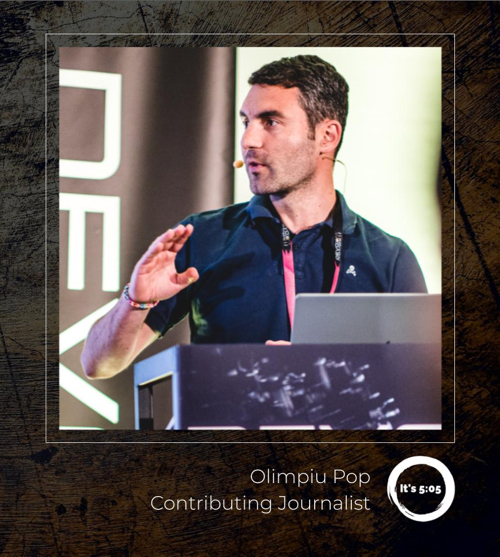 The recent turmoil at OpenAI, stemming from the ousting of CEO Sam Altman, has thrown the AI community into a state of intense discussion and speculation. We have a whole saga that looks more like a new season of HBO’s Game of Thrones than a sane tech company that is crafting the future of humanity. The coup backfired and Altman seems to be returning in a more powerful position, just in time for the Thanksgiving turkey.
The recent turmoil at OpenAI, stemming from the ousting of CEO Sam Altman, has thrown the AI community into a state of intense discussion and speculation. We have a whole saga that looks more like a new season of HBO’s Game of Thrones than a sane tech company that is crafting the future of humanity. The coup backfired and Altman seems to be returning in a more powerful position, just in time for the Thanksgiving turkey.
The saga has significant implications for the broader AI industry. ChatGPT’s release and OpenAI’s innovative strides have triggered a surge in AI investment, with heavyweights like Microsoft investing substantially.
What do these events actually underline? Altman’s departure underscores the schism in AI development philosophy.
On one side are proponents of rapid development and public deployment of AI, represented by Altman, argue that such an approach is essential for stress testing and perfecting the technology. On the other side are advocates of a more cautious approach favoring extensive development and testing in control environments, to ensure AI safety for public use.
Concerns over the uncontrollability of hyper intelligent AI software, have been a significant factor in this divide. This issue is particularly acute among tech workers following the effective altruism movement who prioritize benefits to humanity.
The question of how to balance commercial success with ethical and safe AI development has become increasingly pertinent.
Originally founded as a non profit to ensure ethical AI development, OpenAI’s transformation into a for profit entity under Altman’s tenure has been a contentious issue. This shift has raised concerns about profit motives potentially overshadowing the company’s ethical charter, which aims to prevent harm to humanity or undue concentration of power.
More opinions and resources can be found on 505updates.com.
Olimpiu Pop, reported from Transylvania, Romania.
Resources
– Washington Post: https://www.washingtonpost.com/technology/2023/11/20/microsoft-openai-sam-saltman-fired
– CNN: https://edition.cnn.com/2023/11/22/tech/openai-altman-returns-hnk-intl/index.html
– X: https://twitter.com/sama/status/1727207458324848883?s=20
– Reuters: https://www.reuters.com/technology/openai-execs-invite-altman-brockman-headquarters-sunday-the-information-2023-11-19/















